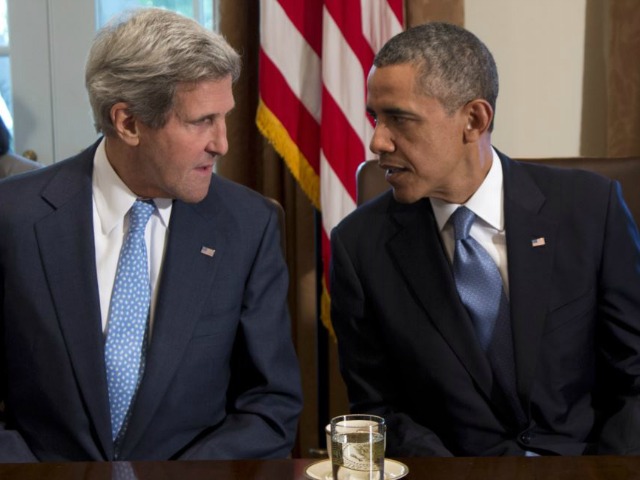On Sunday, the Daily Beast’s Josh Rogin reported that U.S. Secretary of State John Kerry warned world leaders in a closed-door meeting Friday that Israel could become “an apartheid state” like South Africa if it could not reach a two-state solution with the Palestinians. One pro-Israel group is calling on Kerry to resign, while the State Department’s Jen Psaki contended–citing left-wing blogs–that some Israeli leaders had said the same.
It is not the first time Kerry has used such incendiary warnings, calculated to pressure Israel to make additional compromises. But the timing is terrible, coming just days after the Palestinian Authority announced a unity pact with the terrorist group Hamas, which controls Gaza. And the “apartheid” charge is particularly offensive, since it casts the Jewish state in debased moral terms–which is precisely why opponents of Israel love using the term.
The facts are simple. Israel is not, and has never been, an “apartheid” state. Israel’s declaration of independence offers “full and equal citizenship” to Arabs, who constitute roughly 20% of the population. Arabs vote, volunteer for the Israel Defense Forces, and even benefit from affirmative action policies. Such discrimination as exists in Israel is largely informal, and is not too different from the racial discrimination that persists (sadly) in the U.S.
In the West Bank, which Israel captured from Jordan in 1967 in a defensive war, there are some separations between Israelis and Palestinians. Yet these have become necessary for security reasons, especially since the Palestinian terror of the second intifada. Prior to the late 1980s, Israelis and Palestinians moved quite freely into and out of each other’s communities. There are no separations based on race, as in apartheid South Africa.
So the “apartheid” charge is flatly wrong as a description of Israel today. Psaki admitted that: what Kerry meant to say, she explained, was that Israel could become an apartheid state. Kerry is not the first to offer that opinion: indeed, liberal lights like Thomas Friedman of the New York Times has been saying for years that Israel cannot govern the occupied territories while remaining both a democracy and a nation with a primarily Jewish identity.
That is the context in which Israelis, such as former prime ministers Ehud Barak and Ehud Olmert, have used the “apartheid” term. It is intended to provoke alarm–much like Al Gore’s wild (and incorrect) predictions about climate change. It is also, however, based on false demographic statistics, cooked up by Palestinians since the 1990s. In fact, if Israel annexed the whole West Bank, Jews would still be two-thirds of Israel’s population.
There have always been Israelis willing to use the enemy’s narrative–sometimes in the sincere belief that they are doing what is best for their country. The same phenomenon is not unknown in the U.S. Kerry himself first gained fame for his graphic accusations that the U.S. was committing atrocities against civilians in Vietnam. His allegations were largely untrue, but were embraced by the antiwar movement as an argument for withdrawal.
There is also a difference between what a country’s internal critics say in the heat of public debate, and what its allies say around the diplomatic table. To use “apartheid” in referring to Israel–present or future–is not only inaccurate, but undiplomatic, and unworthy of the style Barack Obama promised to bring back to U.S. foreign relations. Kerry’s remark is therefore not just damaging to Israel, but casts further doubt on U.S. credibility.

COMMENTS
Please let us know if you're having issues with commenting.